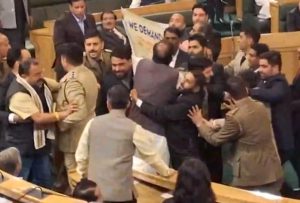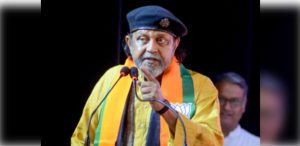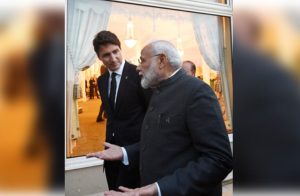Uproar over snooping order, government says just ‘repeated’ UPA notification

Picture For Representation
(Picture for representation)
New Delhi : A major controversy broke out on Friday with the government authorising ten central security and investigating agencies to monitor and intercept all computers, a decision that came under severe attack from the Opposition which accused the government of creating a surveillance state.
Strongly defending its action, the government hit back at the Congress saying the order was a mere repetition of a notification issued in 2009 during the UPA rule.
The issue came to the fore with the Union Home Ministry on Thursday issuing an order authorising 10 central security and investigative agencies and the Delhi Police to “intercept, monitor and decrypt any information generated, transmitted, received or stored in any computer”.
The 10 agencies given the powers of interception are the Intelligence Bureau, Narcotics Control Bureau, Enforcement Directorate, CBDT, DRI, CBI, NIA, RAW, Directorate of Signal Intelligence (for service areas of Jammu and Kashmir, Northeast and Assam only) and Delhi Police.
The Opposition, both inside and outside Parliament, slammed the government calling the decision an “undeclared Emergency” and an assault on the citizens’ fundamental right to privacy and demanded its withdrawal.
Congress leader Anand Sharma said it was an attempt to create a surveillance state, a view shared by many other leaders who also termed it as an Orwellian state.
The issue rocked the Rajya Sabha which was adjourned with the opposition members protesting against the government and indulging in slogan shouting.
Finance Minister Arun Jaitley rose to put up a strong defence of the government recalling that Thursday’s order was only a repetition of a similar order issued under the rules framed during the UPA regime in 2009 to the Information and Technology Act enacted in 2000.
He said what was originally provided for in the Telegraph Act that applied to telephones was extended to computers under the IT Act with modernisation.
“Your government has used it in the past. Our governments have also used it. Every government has used it. The same agencies had the power earlier. In 2009 rules were framed which authorised the same agencies to intercept anybody who played with national security, public order and integrity of India.”
Intervening during the private members’ business, Jaitley accused the Congress of playing with the security of the country and said “And what you are doing, Anand Sharma, is making a mountain where even a molehill does not exist.”
Leader of Opposition Ghulam Nabi Azad said the order nowhere mentioned “national security” which means the agencies can intercept anyone’s data at will.
“An undeclared Emergency has taken its final shape. The central agencies have been let loose…,” he said in the Upper House.
Sharma said that the move would make the country a “police state” and asserted that it was “unacceptable”.
Outside Parliament, former Union Home Minister P. Chidambaram termed it an “Orwellian order” while senior Samajwadi Party leader Ram Gopal Yadav said the Narendra Modi government was digging a hole for itself.
“I want to warn them that this order is in their hands only for four months and after that a new government would be here. So they should not dig holes for themselves,” the SP leader added.
West Bengal Chief Minister and Trinamool Congress supremo Mamata Banerjee termed the move as “dangerous”.
The Communist Party of India-Marxist (CPI-M) said the order was unconstitutional and demanded that it be immediately rescinded.
“Why is every Indian being treated like a criminal? This order by a government wanting to snoop on every citizen is unconstitutional and in breach of the telephone tapping guidelines, the privacy judgment and the Aadhaar judgment,” CPI-M General Secretary Sitaram Yechury tweeted.
Delhi Chief Minister and Aam Aadmi Party chief Arvind Kejriwal said India was under “undeclared emergency” since May 2014 when the BJP came to power at the Centre.
Union Law Minister Ravi Shankar Prasad defended the government.
“I would like to ask, is national security important or not? Is it a fact or not that ISIS is promoting radical Islam and recruiting gullible Indians to their platform through internet? Should this be allowed to go scot free? No,” Prasad said.
As the issue created a storm, the Home Ministry, in a statement, clarified that the notification “does not confer any new powers” and “every individual case will continue to require prior approval” of the Ministry and the state government.
The statement of the Ministry said that “adequate safeguards” were provided in the Information and Technology (IT) Act 2000 and similar provisions and procedures already existed in the Telegraph Act along with identical safeguards.
“The present notification is analogous to the authorisation issued under the Telegraph Act. The entire process is also subject to a robust review mechanism as in case of Telegraph Act.
“Every individual case will continue to require prior approval of Home Ministry or state government. MHA has not delegated its powers to any law enforcement or security agency,” said the statement.
Dismissing the Centre’s defence, the Congress demanded to know as to what was the threat to the nation behind giving a “blanket authority” to the central agencies to snoop on all computers.
Taking to Twitter, Congress President Rahul Gandhi called Modi an “insecure dictator”.
“Converting India into a police state isn’t going to solve your problems, Modi ji. It’s only going to prove to over 1 billion Indians what an insecure dictator you really are,” said Gandhi.
Bharatiya Janata Party (BJP) President Amit Shah took on Rahul on the social media.
“There were only two insecure dictators in the history of India. One imposed Emergency and the other wanted unrestricted access to read letters of common citizens. Guess who were they Rahul Gandhi?” Shah said in a veiled reference to former Prime Ministers Indira Gandhi and Rajiv Gandhi.
“Yet again Rahul does fear mongering and plays politics with national security. UPA put no barriers on unlawful surveillance. When Modi government puts safeguards for citizens, Rahul cries conspiracy,” Shah added.
Published on: Dec 21, 2018 at 20:42 IST
IANS




